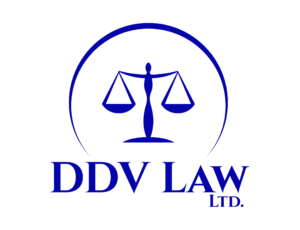All of us need to plan for how our assets and financial decisions will be handled if we cannot make those decisions and once we have passed. Many of us need to decide whom to pass our business on to once we retire or have passed. It is easy to view estate planning and business succession planning as the same process since they often involve the same people, but they are different processes.
Estate planning is the more personal of the two processes. It involves decisions like who will make health care decisions for you if you cannot make those decisions and who will manage your financial affairs if you are unable to manage them. Estate planning also includes deciding how you want your personal assets distributed and to whom.
Questions to consider when beginning your estate planning process include:
- Of the people in my life, which would be best able to make health-care decisions for me?
- Whom can I trust to make financial decisions on my behalf?
- How do I want my assets distributed, and who should distribute them?
- What assets do I have, and how exposed are they to estate taxes and other taxes?
- Do I want to be kept alive on life support for a specified period of time, or not at all?
- When I die, do I want to donate my organs? Do I want my body buried or cremated?
Your estate plan can name beneficiaries of your shares of your company and can be coordinated with your business succession plan. Your business succession plan lays out your intentions for how your business will operate and who will run it after you are no longer at the helm.
Questions to consider when creating your business succession plan include:
- Will my business continue to be viable after I am no longer running it?
- Are any of my family members involved with the business? Do I have family members not yet involved with the business, but who want to be?
- If there are family members involved, or if there will be family members involved, are their visions for the business similar to the current vision for the business?
- If I have people in mind to run the business, are they adequately trained to run the business? If not, can they be trained to run the business?
- Do I need to sell my business to provide for future financial security?
When creating a business succession plan, you will want to plan for the smoothest transition of responsibility as possible. You will need to decide which family member, if any, will best fill your role in the business. Suppose you have more than one family member in the business or are interested in being a part of the business. In that case, you will need to decide how to accommodate their interests while doing what is best for the business.
Good estate planning can help avoid probate court costs, unforeseen estate taxes, delays in the distribution of assets, and disagreements among family members. A clear business succession plan can provide for a smooth transition to new leadership, maintain or boost employees’ faith in the leadership, and avoid power struggles within the company and disagreements within the family. The ideal situation is to have both plans working in harmony.
If you own a business and want to pass the business on to at least one family member, you will need to create a clear business succession plan that works well with your estate plan. The earlier you create both plans, the better prepared you will be for the future.
This article offers a summary of aspects of estate planning and business law. It is not legal advice, and it does not create an attorney-client relationship. For legal advice, you should contact an attorney.
When you are ready to take the next step, contact our Chicago area offices by calling 312-878-0155. We have three convenient locations to assist you.”

